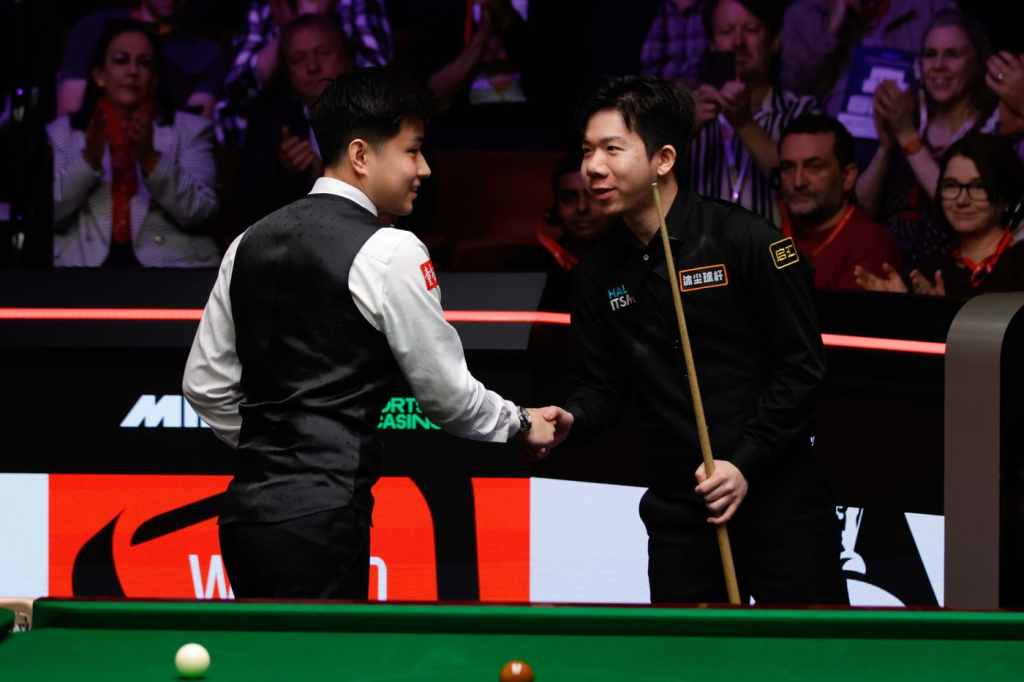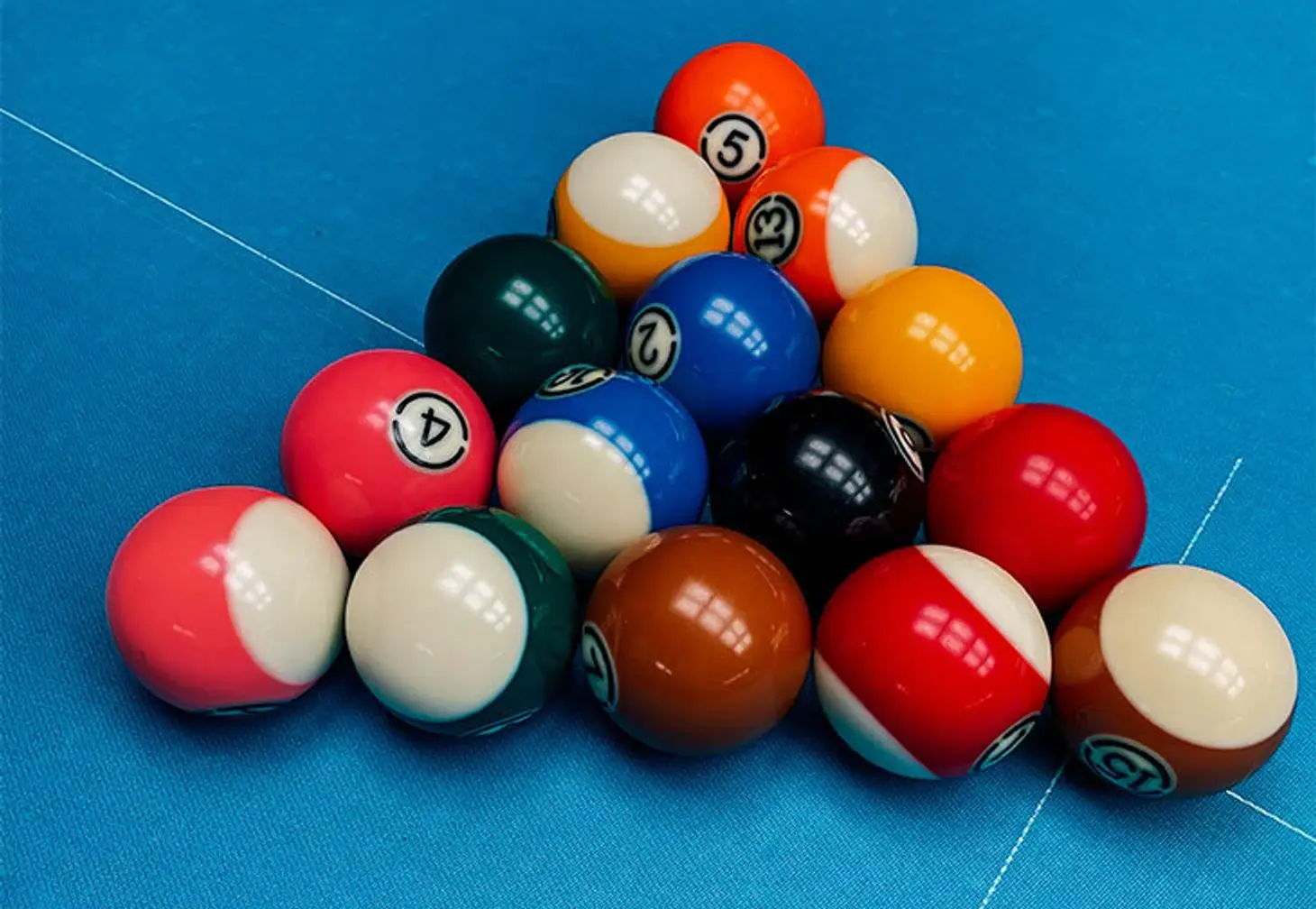This year, snooker has clearly transcended its usual boundaries. Not only has the World Championship come to an end, but it has also radically changed perceptions of the game and rewritten a history that seemed to adhere to strict rules. The matches brought unexpected twists and turns, shifting attention to new names, extraordinary events and unprecedented results. The results of the 2025 World Snooker Championship were the subject of heated discussions, not only among loyal fans but also within the entire professional snooker community.
The main results of the 2025 World Snooker Championship
The tournament ended with a duel that no analyst could have predicted. The final was not a duel between the greats. In the decisive match, a player who was not in the top 32 of the rankings faced a Chinese player who had worked his way through three qualifying rounds. The final of the 2025 World Snooker Championship became a scenario in which it was not the names, but the concrete actions that determined the outcome.
The match lasted 33 frames. The score fluctuated between +4 and -2, with no series providing a psychological advantage. The leader changed every three games. Pace, instability, emotional volatility: each episode increased the tension. The 134-point break in frame 29 was the decisive turning point that changed the dynamics of the game. The results of the 2025 World Snooker Championship were the most unusual final in the last 15 years.
The sensation of the year: a new champion without status.
 The big unknown of the tournament – who was not a member of the Main Tour, did not participate in qualifying tournaments and had no sponsorship contracts – won the world championship. An amateur snooker player won the world championship, news that surprised the experts. He made it through the entire qualifying round without losing a single match, eliminated three former champions and achieved the maximum break twice.
The big unknown of the tournament – who was not a member of the Main Tour, did not participate in qualifying tournaments and had no sponsorship contracts – won the world championship. An amateur snooker player won the world championship, news that surprised the experts. He made it through the entire qualifying round without losing a single match, eliminated three former champions and achieved the maximum break twice.
Who became world snooker champion in 2025?
The 22-year-old Chinese player, who had previously participated in national tournaments, received a wild card for the qualifying stage. Victory in each match was accompanied by an aggressive style: attacking from the first shot, foregoing defensive tactics. The winner demonstrated a model of the new school of snooker: high speed, risk, dominance through initiative. His average shot time was 13.2 seconds, the fastest in the tournament.
Results of the 2025 World Snooker Championship: stars under pressure
The results of the 2025 World Snooker Championship showed a shift in the balance of power. The leading players of the past decades could not keep up with the new wave. Ronnie O’Sullivan started the 2025 World Championship with absolute dominance. In the first round, his opponent could not keep up with him. 10:2: a crushing victory, supported by two series of over 90 points and tactical perfection. However, the next match ended with a surprise. The 24-year-old Indian snooker player, a participant in the Asian tour, played six frames in a row without making any significant mistakes. Each move was like a precisely calculated mathematical equation. Ronnie responded with instability: a series of mistakes, tactical indecision and a lack of power in his game. There was not a single break of more than 50 points. The opponent took advantage of every opportunity. The result was a premature end to the tournament, which was seen as the symbol of an era.

Mark Williams did not reach the final, despite having played smoothly throughout the tournament. In the quarter-finals, he was leading 10-8 but then gave away three frames in a row. The decisive frame came after a mistake on an easy red ball. The pressure that had built up during the evening became insurmountable. Williams left the arena without giving any interviews. The final frame lasted 43 minutes and was an example of how the younger generation is supplanting the classics thanks to their stamina and psychological superiority. The results of the 2025 World Snooker Championship definitively closed the cycle in which the names O’Sullivan, Williams and Higgins set the tone. They did not even make it to the semi-finals.
Zhao Xintong and the generational change
The legends were replaced by fighters from a new generation. Zhao Xintong played the World Snooker Championship in the style of an aggressive general. The average duration of a series was 48 points. The aggressiveness was noticeable from the first shot. The player did not seek safe solutions but launched an attack in 82% of the matches. During the tournament, he scored 738 points, which is an absolute record for the modern format.

In the semi-finals, Zhao encountered resistance, where the defence exceeded his pace. The player from Wales forced him to fight for his position. Xintong lost his precision. At decisive moments, he missed from close range, lost his concentration in the series and even succumbed in tactical duels. The final session ended with a 6-10 defeat. Despite this failure, the player became a symbol of the transition from a calm pace to immediate decisions. His game laid the foundation for a new vision of tactics. The results of the 2025 World Snooker Championship did not bring Zhao a title, but they did put him in the spotlight of coaches and sponsors.
Financial results of the 2025 World Snooker Championship and prizes
The results of the 2025 World Snooker Championship showed not only sporting but also commercial changes. The total prize money for the tournament rose to £4.5 million, an increase of 8% compared to 2024. The winner received £650,000 and the runner-up £260,000. Each of them was awarded £130,000 for reaching the semi-finals. Additional bonuses of £100,000 were awarded for the best series and £50,000 for the best shot.
The commercial figures for the tournament showed expansion outside Europe. Broadcasts in Asia exceeded 35 hours and the number of broadcasts via mobile platforms increased by 40%. For the first time, snooker appeared in the trends of the major Chinese and Indian social networks. This meant an injection of new capital, including contracts with five new brands that had never worked with sport before.
Classification and long-term consequences
The results of the 2025 World Snooker Championship led to radical changes in the tournament system. The new champion, who had previously played in the amateur league, automatically earned the right to participate in the Main Tour for two years. He started in 17th place in the rankings, the highest position for a player with no experience in professional competitions. His victory changed the analysis vectors in the betting sector: from predictions about names to the evaluation of unstable but promising newcomers.
The clubs changed their selection criteria. Whereas experience in qualifying tournaments was previously decisive, the emphasis is now on technical skills, game speed and the ability to make decisions under pressure. National academies have begun to revise their methods: faster decision-making, training in short series and simulating stressful situations are now part of basic training.
A turning point in history
 In 2025, snooker reached a turning point. The victory of an outsider, the fall of the greats, commercial growth and a change of pace: all this marked a new direction in the evolution of the sport. The tournament broke with the old structures and showed that the title of champion is no longer reserved for the giants of the rankings. The results of the 2025 World Snooker Championship will go down in history as a symbol of an era of change.
In 2025, snooker reached a turning point. The victory of an outsider, the fall of the greats, commercial growth and a change of pace: all this marked a new direction in the evolution of the sport. The tournament broke with the old structures and showed that the title of champion is no longer reserved for the giants of the rankings. The results of the 2025 World Snooker Championship will go down in history as a symbol of an era of change.
 en
en  ru
ru  de
de  ar
ar  es
es  nl
nl  hi
hi  fr
fr  it
it  pt
pt  el
el 









